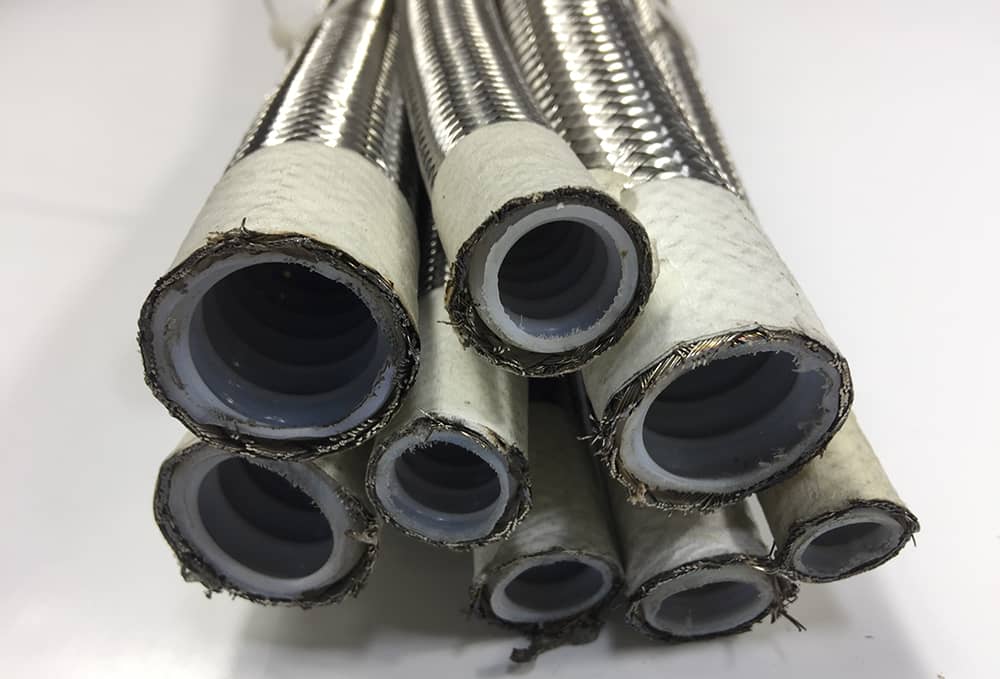1. Unmatched Chemical Resistance: PTFE Hose Outperforms Others
Unlike rubber hoses or PVC hoses, PTFE hose handles almost all corrosive fluids. It works with fuels, oils, industrial cleaners, and even harsh acids like sulfuric acid without breaking down. This makes PTFE hose ideal for chemical plants, laboratories or automotive shops. But other hoses would leak or fail within weeks. No other common hose material offers this level of chemical protection.

2. Wide Temperature Tolerance: PTFE Hose Works in Extremes
Most rubber hoses crack below -20℃ or soften above 80℃; PVC hoses fail at -10℃ or 60℃. But PTFE hose works safely from -200℃ to 260℃.
This means PTFE hose works in freezers, industrial ovens or engine bays. In these places, other hoses would become brittle or melt. It doesn’t lose flexibility or strength in extreme heat or cold, unlike rubber or plastic hoses.
3. Superior Durability: PTFE Hose Lasts Longer
PTFE hose resists abrasion, UV rays, and aging better than rubber or PVC hoses. Rubber hoses dry out and crack after 1–2 years. PVC hoses become brittle in sunlight. But a well-maintained PTFE hose lasts 5–10 years.
It also doesn’t kink easily. Unlike corrugated rubber hoses or smooth PVC hoses, PTFE hose retains its shape even with frequent bending.
